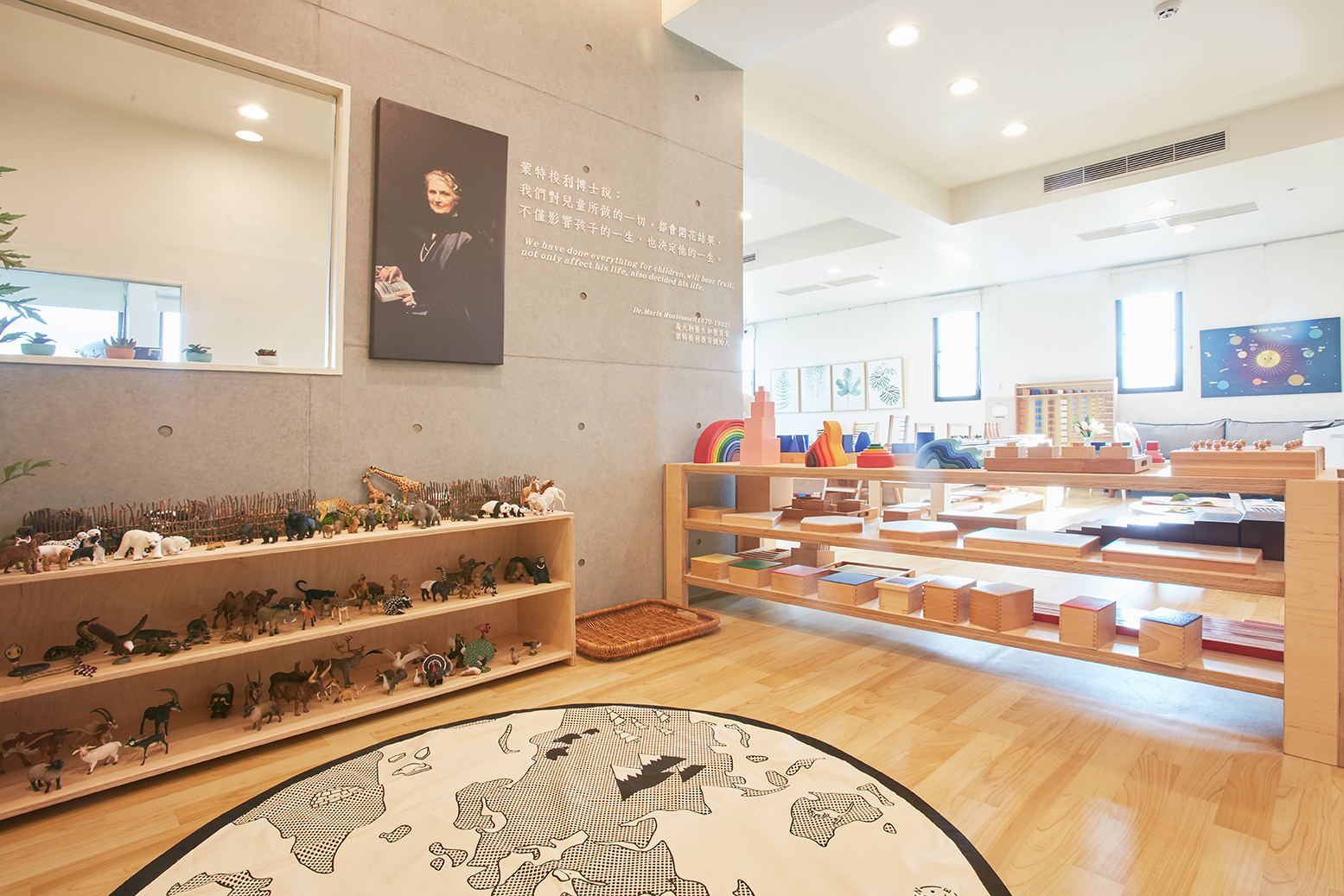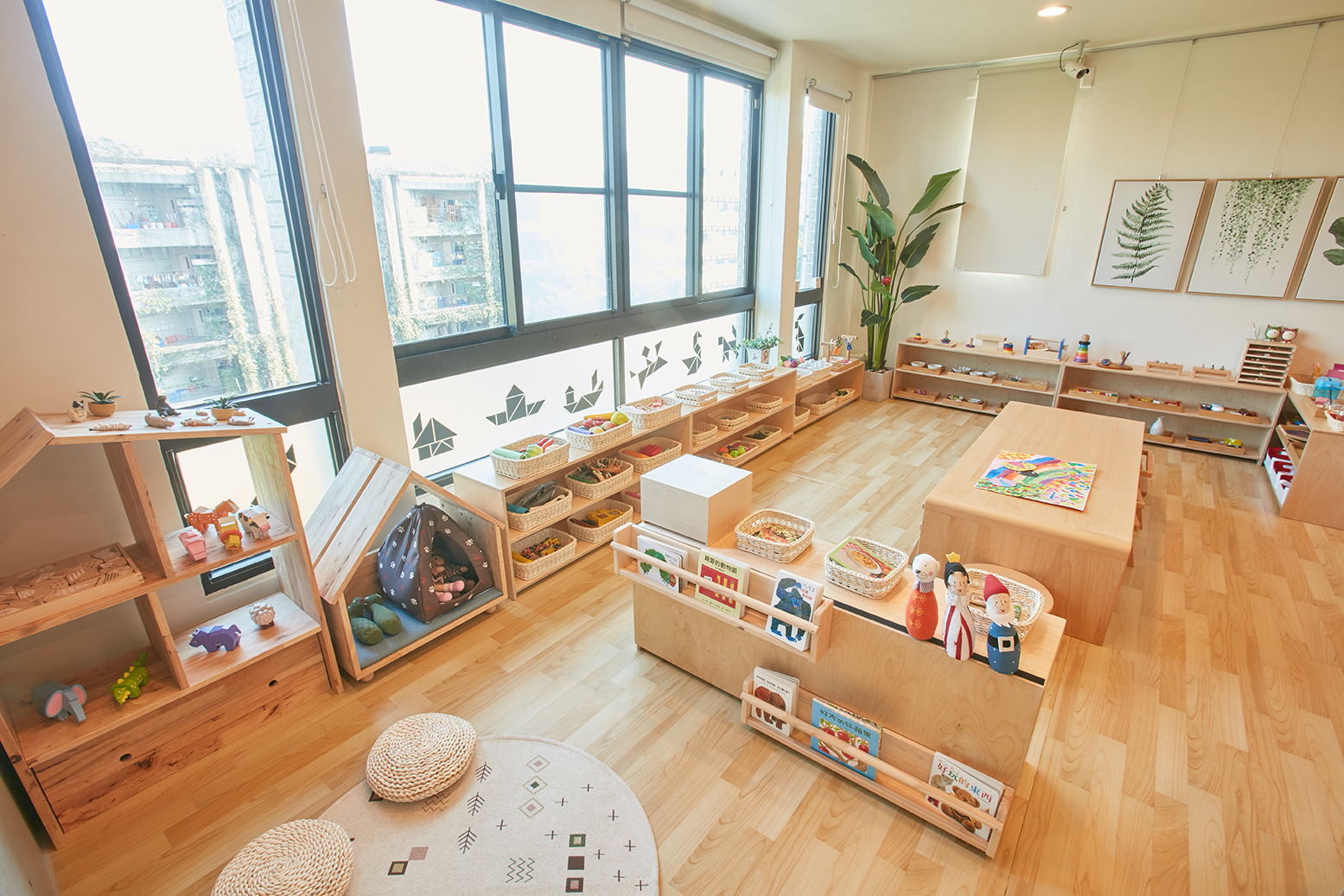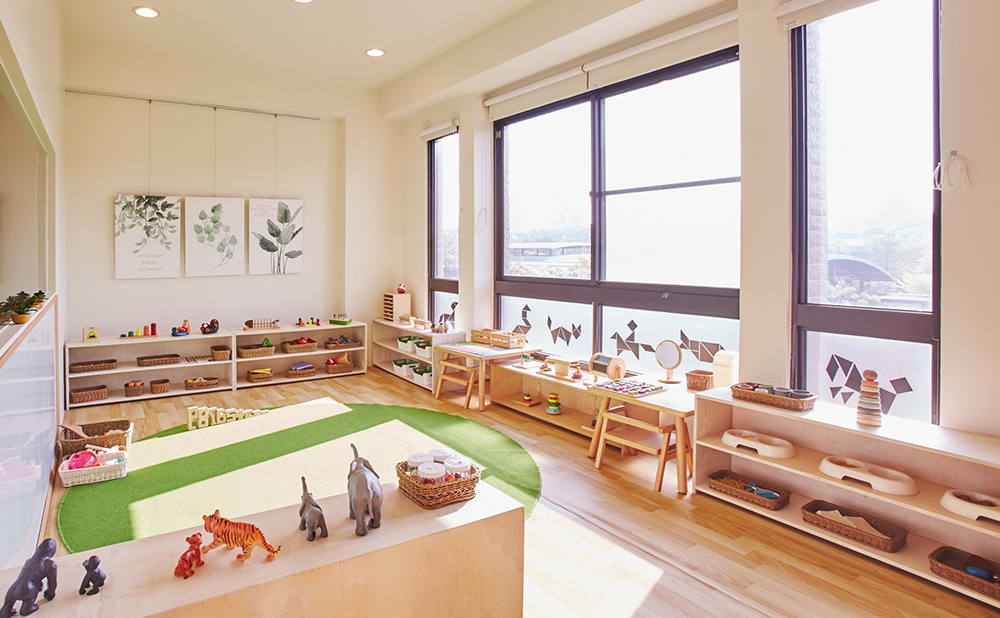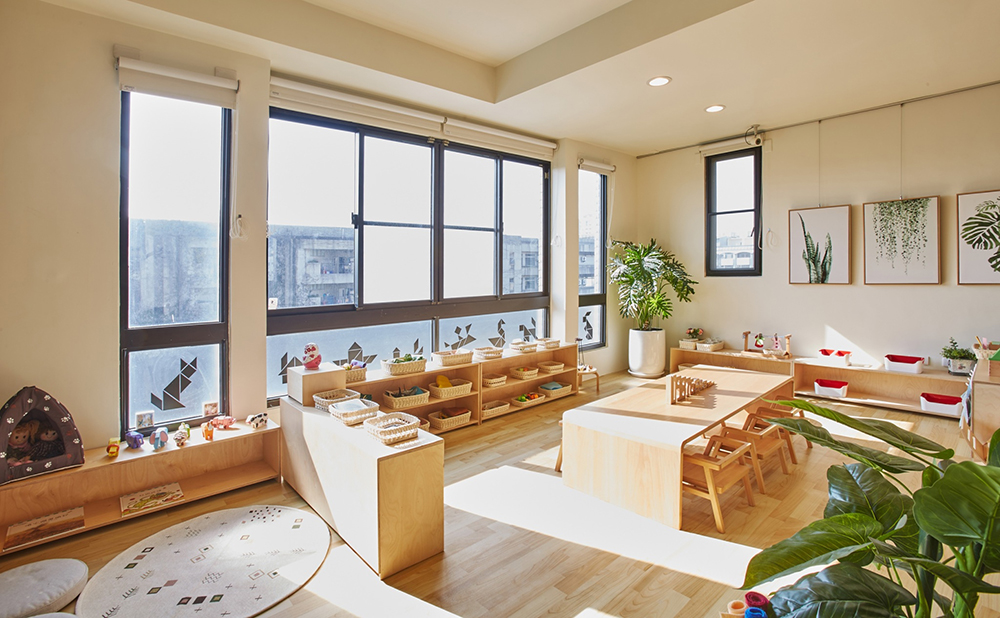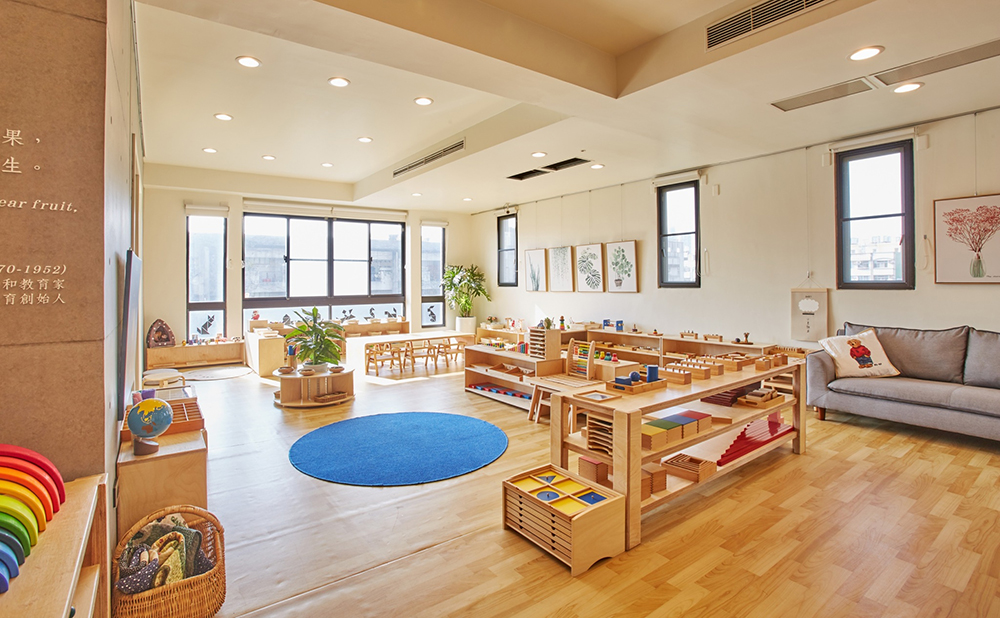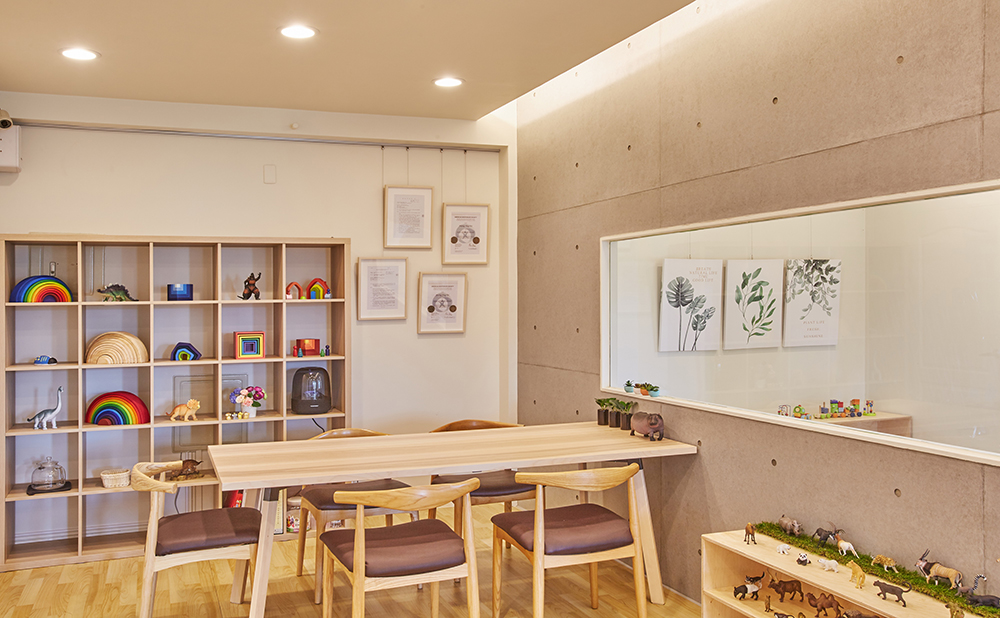蒙特梭利教育環境預備
Montessori Education Enviroments Preparatory
Initiate key learning for children-the importance of Montessori education for inspiring children's early development
Many parents come to our classroom are very surprised that our children can study quietly by themselves!! Yes, no matter you see the children, they can read, math, draw, percussion music, and a professional Montessori. The benefit classroom can guide children to learn more naturally than you think.
We encourage parents to study together with their children. Through the process of parents accompanying them in the classroom, you can see that children take the initiative to do a lot of work, and we can see the communication between children and teachers, peers and parents, and the children’s initiative and cooperation in the classroom. The attitude of independent learning shows that Montessori education advocates immersive education, in which children unconsciously absorb and learn from the environment prepared by adults.
From the medical background and the experience and observation of educational practice, Montessori concluded that human growth is divided into four stages: birth 0 to 6 years old, 6 to 12 years old, 12 to 18 years old, 18 to 24 years old. Every stage has an educational task. Montessori Education advocates that children’s learning from 0 to 6 years old is operated by the absorptive mind and sensitive period. World-renowned educators advocate the cognitive development of children Well-known scholars, Piaget, Freud, and Tagore were all founders of the Montessori Education Association at that time.
Montessori Education-Absorptive Mind for Infants and Children 0~6 Years Old
There is a special mind at each stage of infancy, which Montessori calls "absorbent mind." Children are like sponges. They absorb information from the outside world from the environment prepared by adults. This period of learning is very fast and the absorption capacity is very strong. Montessori believes that this is the most important stage in a person’s life. His intelligence, personality, and mental potential are all developed at this stage. Many research reports confirm Montessori's learning theory.
Dr. Benjamin S. Bloom from the University of Chicago wrote in the book "The Stability and Change of Human Traits": "From conception to the age of four, 50% of the intelligence is developed; from the age of four to eight, The development of the other 30%, which shows that the development of intelligence is very rapid in the infants and young children. Therefore, early environmental preparation has a great impact on the development of children’s intelligence. This is in line with the absorptive mind of Montessori education. The theory coincides with each other.
Montessori emphasizes that the age of 0 to 6 is called the "unconscious stage." Infants and young children do not realize that they are learning, but they have a natural and strong desire to learn. The environment is integrated into the children's life. The age of 3 to 6 can be called In the "conscious stage", he knows that he is studying, and he is very good at asking questions, often asking "why?" The important task in the early childhood is the independence of the body. The child must learn to use his body motor organs to walk, run, jump, talk, etc. The absorptive mind is essentially a strong memory and internalized learning ability. This period Children gradually establish a basic personality and cognitive framework by learning and absorbing the things around them.
In modern times, there have been more and more studies on the development of children’s brains, and more and more researches on brain cognitive sciences. In the past, most of the subjects of brain research were mainly animals or pathological anatomy. Nowadays, scientists can use advanced technology to study infants. The brain development of young children, the insights of Montessori's prophet at the time, are now confirmed one by one with advanced technology. Unlike adult brains, babies’ brains have amazing plasticity. Any stimulus will leave imprints in their small brains. These imprints contribute to the direction of the brain’s development. In other words, what kind of environmental stimulus makes it. People. For example, infants who exercise more have well-proportioned muscles and bones and have coordinated movements; children who listen to music more are more sensitive to music when they grow up.
Children who receive Montessori education can do all their work independently, and enter their work situations in a focused, quiet and serious manner. Many parents will be surprised to ask us why 2-year-old children don’t mess in the classroom. Discard teaching aids, speak loudly, or snatch teaching aids? This is because children learn to respect themselves, others, and the surrounding environment in a Montessori education environment. Dr. Maria Montessori believes that children are naturally eager to learn and are capable of self-learning driven by their own interests. In order to support children’s overall development and subtle immersive learning, classrooms are planned and prepared for learning environments suitable for all ages. Studies have confirmed that Montessori education can promote positive and stimulating growth in the cognitive, emotional, social and physical development of infants, children and adolescents.
